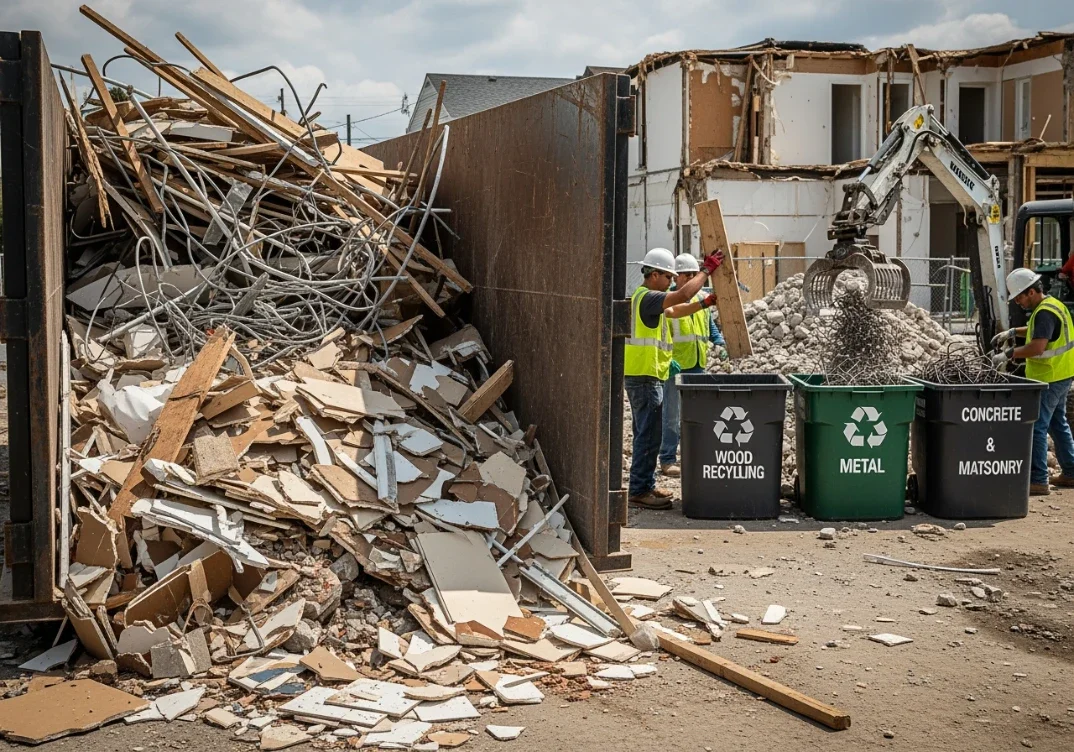How to Prepare Your Concrete Driveway for Cold Weather?
Learn how to prepare your concrete driveway for cold weather. Follow our expert tips to protect it from freeze-thaw damage and ensure longevity through the winter months.
Feeling the chill creeping in as winter approaches? Your concrete driveway might be feeling it, too. Cracks, heaving, and surface damage are common cold-weather foes that can wreak havoc on your driveway's integrity.
So, it's time to arm yourself with knowledge and prepare your concrete driveway for the frosty battle ahead. From sealing cracks to ensuring proper drainage, there’s plenty that you can do for your concrete driveway in Melbourne. Let’s learn how to do it point by point in this guide.
1. Clean driveway often
Winter is knocking on the door, and your concrete driveway needs armour against the icy assault. Start by reclaiming its strength with a simple yet crucial step: Clearing and Cleaning Your Driveway.
Fallen branches, leaves, and debris lurking beneath the snow's blanket are always ready to sabotage your driveway's integrity. Don't let them! Grab your broom, clear the clutter, and give your driveway a refreshing wash to banish dirt and grime. It's not just cleanliness; it's defence against deterioration. Shield your concrete driveways in Melbourne from winter's wrath by starting with this fundamental prep.
2. Inspect the driveway for cracks
A crucial step in winterising your driveway involves inspecting it for any fissures in the pavement. Neglecting these existing cracks can land you in trouble.
Rainwater and snowmelt infiltrate those tiny crevices, only to freeze solid when temperatures plummet. The result? Expanding ice exerts immense pressure on your pavement, prompting it to shift and crack further. Even after the ice thaws, the damage lingers, leaving your pavement compromised.
To avert such woes, promptly seal any cracks you spot before winter's icy grip tightens. By nipping these issues in the bud, you shield your driveway from the havoc wrought by freezing and thawing cycles.
3. Protect your driveway with sealant
Keep your driveway safe from winter by putting on a strong sealant. This special coating fills up small cracks and stops harmful de-icing chemicals from causing damage. But remember, first, fix any cracks or problems before using the sealant.
A tough shield covers your concrete driveway, keeping it safe from the cold and snow. With cracks patched up and damages fixed, your driveway is ready for winter. So, don't wait—apply the sealant now to keep your driveway strong all season long.
4. Ensure good drainage and level ground
Puddles turn into treacherous ice rinks overnight. So, before winter sets in, take a moment to check if your driveway has any drainage problems. If water tends to collect, it can freeze into dangerous ice patches when temperatures drop. These icy spots not only pose a slipping hazard but also worsen cracks and damage your concrete driveway in Melbourne.
To avoid this scenario, ensure your driveway has proper drainage. By levelling the ground and fixing any drainage issues now, you will prevent icy hazards and keep your concrete or asphalt in top condition throughout the winter months.
5. Choose the correct ice melter
Consider investing in an ice melt to prep your driveway for the coming winter. However, you should know that not all ice melts are equal. Some contain harsh chemicals that can eat away at your concrete or asphalt, which are better to avoid.
The wrong ice melt can cause more harm than good, leaving your driveway worse off. Instead, opt for a safer option that won't damage your pavement—you can ask the opinions of your commercial concrete contractor if necessary. By choosing the right ice melt, you will keep your driveway safe without sacrificing its integrity.
6. Shovel regularly
To effectively safeguard your driveway throughout the winter season, the key task is ensuring prompt removal of accumulating snow and standing water. Regular shovelling may seem like a minor chore, but its impact is significant. Eliminating snow before it melts and causes issues can save you considerable time and money in the long run!
Alternatively, employing a snow blower is an option, albeit requiring a cautious approach. It's crucial to be mindful of potential snags in small cracks and potholes, as the force from a snowblower can harm the surface.
Here are some efficient strategies for clearing snow and ice from your concrete driveway:
● Acquire a sturdy shovel suitable for the size of your driveway area.
● Opt for a plastic shovel over a metal one to minimise the risk of surface scratches.
● Refrain from using sharp tools on ice to prevent surface damage; instead, utilise non-abrasive ice melters or a rubber-edged ice scraper.
● Consistently pile cleared snow in designated areas away from the driveway to maintain accessibility and prevent obstruction.
What comes after winter?
As spring blossoms, seize the opportunity to evaluate your driveway's condition. Prompt action is key if repairs are needed; delaying them only exposes your driveway to further risk in the next winter season.
Assessment: Thoroughly inspect your driveway for any signs of cracks, potholes, or surface damage incurred during the winter months. Take note of spots requiring special attention.
Repair: Utilise a top-notch patching compound or asphalt repair material to mend any cracks or potholes that have emerged. For extensive damage, consider enlisting professional assistance.
Cleanup: Eliminate debris, sand, or lingering de-icing residue from your driveway's surface. Employ a broom or leaf blower to sweep away accumulated dirt and particles.
Sealing: Evaluate the condition of your driveway sealant; if it's worn, contemplate applying a fresh coat to safeguard it. This proactive step extends its lifespan and preserves its visual appeal.
Final Word:
There you go! Now you are better prepared for the cold weather. Apart from this, if you need any professional help, don’t hesitate to call RoadSeal Civil—a reliable commercial concrete contractor. If your driveway is excessively damaged, partner with them and get it repaired before winter. Otherwise, the damage will be severe.






























